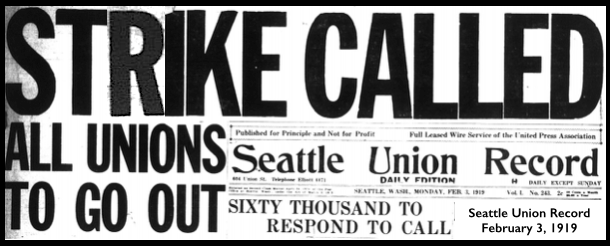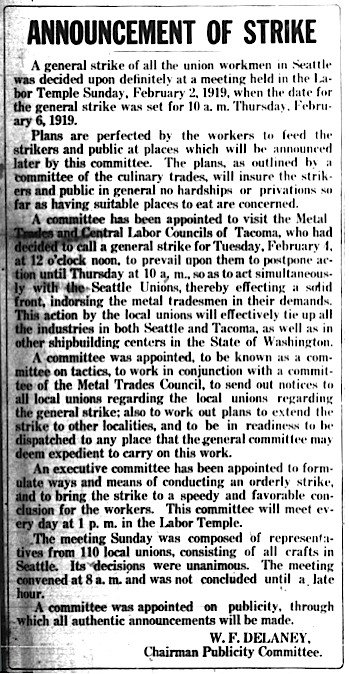 —————
—————
Hellraisers Journal – Wednesday January 20, 1904
News from Colorado Strike Zones of Telluride and Cripple Creek
From The Denver Post of January 15, 1904:
SIBERIAN EXILING SCENES.
Telluride, Colo., Jan. 15-Tears, curses, maledictions and prayers were heard at the depot this morning when the train pulled out of the station having on board six union miners, who were being deported by the military. The men were given breakfast early, the meal being served from the Sheridan hotel, after which the wife of one of them was reluctantly permitted to visit her husband in jail. At 8 o’clock a bunch of blue-coats, under the command of Captain Scholz, marched to the court house and the prisoners were taken to the county jail and formed into line, ready for the march to the station.
A woman with a small child attempted to fall in line with her husband, but was brutally prevented by the soldiers, who forced her back on the sidewalk. With a face drawn with bitter agony and grief she endeavored to keep up with the soldiers as they marched down the streets, but the prisoners had reached the train long before she had gone a block.
At the depot the men were immediately put aboard the train and two soldiers stationed at the car windows. The relatives of the men were allowed to talk to them, and for a moment the air was filled with tearful good-byes and well wishes.
Fifteen minutes before the signal was given to start three women came running down the track. One of them , a Mabel Marchinado, a mere girl, hardly 17 years old, weeping bitterly, rushed over the icy platform to the window in which one of the men was sitting, and exclaimed: “oh, papa, what are they going to do with you?”
Her father, Tony Marchinado, endeavored to comfort her, but the girl continued sobbing pitifully. The sympathy of the entire crowd at the depot went out to this girl, and some turned away. Then the soldiers ordered her to move on.
The girl suddenly ceased weeping and, turning to those standing, and in a voice loud enough for the military to hear, said: “I think it’s living shame for men living in this country to be treated in such a manner.” She was not arrested.
The woman with the small child in the meantime reached the depot almost exhausted. She purchased a ticket and boarded the train on which her husband was about to be sent into exile. She cried bitterly and her baby was blue with cold. “I am too sick to work and look after our baby alone, and I am going with my husband, if it means the jail.” she moaned. If ever volumes of mute sympathy went out from a crowd, it went out greater as she bent down her head and fondly kissed the lips of her offspring, in vain endeavor to hush its cries from the biting cold. It was by far the saddest incident yet recorded in the military occupation of Telluride and the subsequent deportation of striking miners…
[Emphasis added.]
The names of the six deported men are: Tony Marchinado, Tony Sartoris, Louis Sartoris, F. W. Wells, Matt Lingol and Battiste Monchiando.

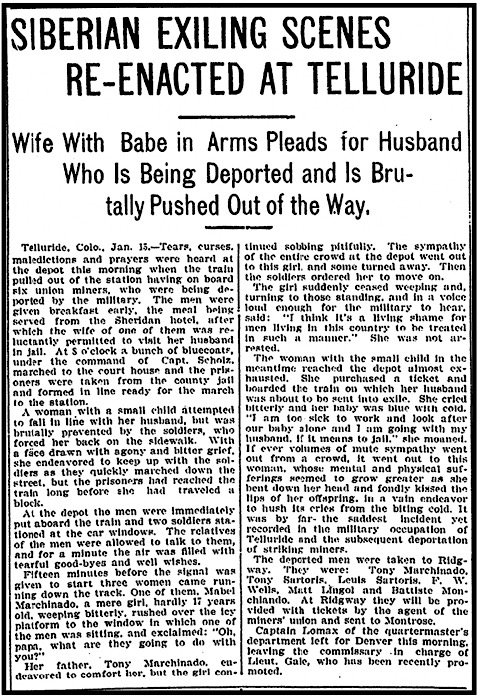
 —————
—————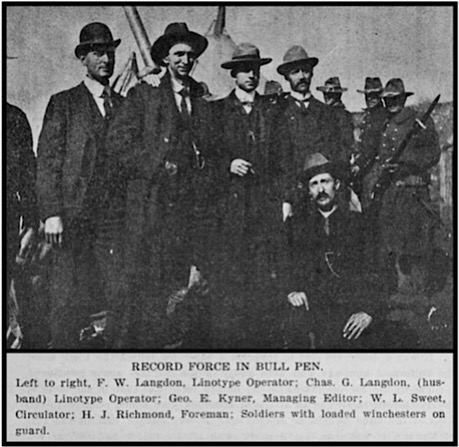
 —————
—————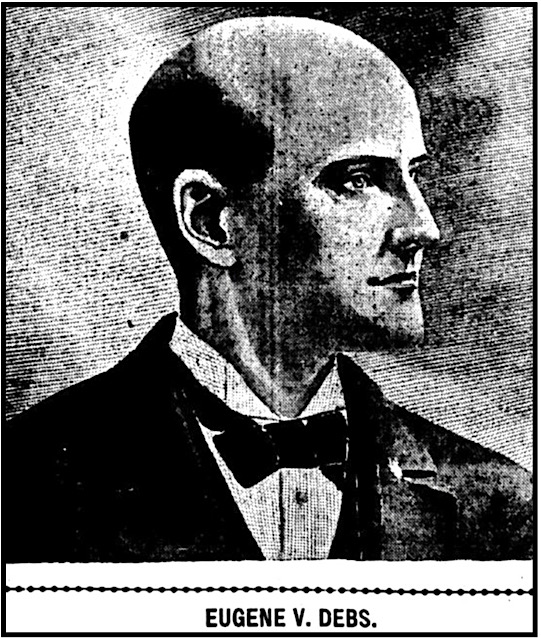
 —–
—–